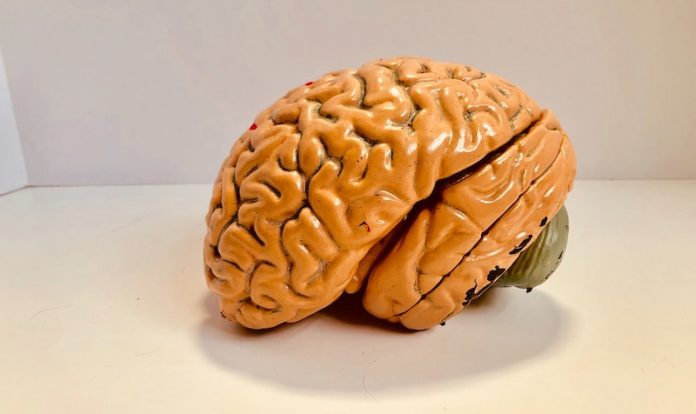
In a new study from Yale and elsewhere, researchers found that a contributing factor in dementia may come down to a double dose of bad waste management in the brain.
They found that the body’s systems for flushing waste out of the brain failed to work properly when faced with cerebral amyloid angiopathy (CAA), a condition in which the protein amyloid-beta builds up in blood vessels in the brain.
CAA is a leading cause of brain hemorrhage and is closely associated with Alzheimer’s disease. There is currently no effective treatment for the condition.
The main culprit in CAA may be an abnormal re-routing of cerebrospinal fluid (CSF) away from the brain’s glymphatic system. CSF normally flushes through the glymphatic system as a handy trash removal service.
In the study, the team developed innovative MRI imaging techniques and computational methods of fluid dynamics to track the glymphatic system in rodents with CAA.
They discovered that when the CAA disease is present, the brain appears to divert most of the waste-removing fluid away from glymphatic cleaning channels.
When CSF does not go into the glymphatic channels, the brain does not get ‘cleaned’.
There is a lot of garbage that will rapidly build up, because fluid is not getting into the right channels to remove waste.
The cause of this re-routing of the glymphatic system remains a mystery. One possibility might be that inflammation also sets in with CAA and cuts off normal glymphatic pathways in the brain.
But the glymphatic system is not the only waste disposal service in the brain being affected by CAA.
The researchers discovered that the lymphatic system—a network of lymph vessels in the membranes covering the brain that drains to the lymph nodes in the neck—may likewise be impaired.
Although lymphatic drainage still occurs with CAA, the researchers found that the drainage is slowed down.
The researchers said their findings may offer insight into possible treatment options for CAA that would restore normal fluid passage through the brain’s waste disposal system before the disease has taken hold.
If you care about dementia, please read studies about an aspirin a day does not keep dementia at bay and findings of personality traits that may protect you from dementia.
For more information about dementia and Alzheimer’s disease, please see recent studies about hobby that could help protect against cognitive decline in older people, and results showing eating plenty of apples, berries and tea linked to lower dementia risk.
The study is published in Nature Aging and was conducted by Dr. Helene Benveniste et al.
Copyright © 2022 Knowridge Science Report. All rights reserved.



